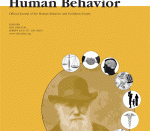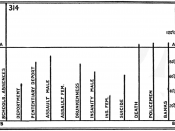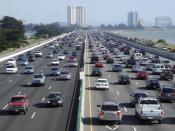The style of life we have is forever changing due to the improvements of technology. These alterations affect the human behavior and perception into what Rebecca Solnit describes as an "estrangement" to naturalness of biology.
Writer Solnit's believes that the long time use of feet as a means of travels has been severed by the new waves of mechanization. And that belief has truth within it.
Man has become dependent on the new "prosthetics" he has gained; with a deep belief that it will transport him faster and wields a greater power. Arguments by Solnit and Wolfgang Schivelbusch support the idea that the obsolescence of "foot power" has disembodied the traveler. It does not allow the individual to enjoy the journey, but makes him/her oblivious to the wonders of their surroundings. Schivelbusch described the traveler as a mere projectile, thrown through time and space. Although the individual is experiencing "enlightenment", they do not notice it because they're encapsulated and can almost be described as in a sensory deprivation chamber, as told by Paul Virilio.
The traveler is bombarded with mindless movie and activities. The traveler is made dull by these entities and is atrophied - mentally and physically. The individual does not appreciate the gift of time they are given nor the experience of beauty they are surrounded with.
However, having experienced different modes of traveling and lifestyle, the idea of mechanization as having a negative effect on "foot power" is a personal subject of controversy. Having been born in a third world country and living a portions of my life in varying neighborhoods, automobiles have been a both a boon and curse. In my homeland, walking was the way of transport for a majority of its people. It allowed one to be at peace with the surroundings and be really able to observe what was going on. Cons of walking are the constant bombardment of cars and their honking, as well as the dirt and pollution in one's face. Moving to the states and into a modern, urban neighborhood where everything was much cleaner and pedestrian friendly was something I embraced with open arms. No longer was there a constant exposure to filth, as I was now actively using public transportation. Trains and buses helped a person to get from Point A to Point B, quicker than being on foot. It saved time allowing one to get to their location and the ability to multitask on a subway is a gift that people rarely use. The time spent traveling can be used for beneficial entities that one is constrained by time to do. Later on in life, a move to a suburban neighborhood drastically changes life. Agreeing with Schivelbusch, the suburbs are a dull, vast expanse. It forces one to rely on a car for means of transportation - seeing as bus stops are a somewhat rarity, being spaced out at greater distances from each other and one's home. Reliance on a personal mode of transport is heavier to get to places.
The subject what kind of an effect mechanization has on the perception of a person is completely dependent on that individual alone. He/she needs to have been exposed to the right conditions - i.e. enough travel time. What and how they travel in, has an even greater effect. For example, on a plane trip, only those with a window seat are fortunate enough to see the beauty that's outside. While the rest are "rotting" away with mindless activity.





